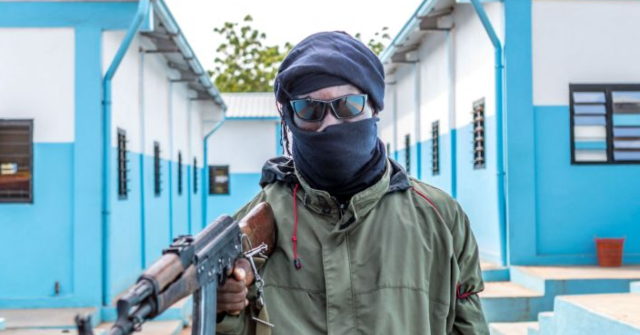Togo’s Foreign Minister Robert Dussey said last week that at least 54 civilians have been killed this year by Jama’a Nusrat ul-Islam wa al-Muslimin (JNIM), a terrorist group affiliated with al-Qaeda.
Dussey’s remarks during an interview with Reuters represented one of the few official acknowledgements of Togo’s growing terrorism problem. Jihadis tied to al-Qaeda and the Islamic State have been spreading across the region ever since the juntas that rule Niger, Burkina Faso, and Mali cut ties with Western governments and shut down their counter-terrorism operations, but Togo remained relatively unscathed until recently.
The three coup governments formed a defensive bloc called the “Alliance of Sahel States” in 2023, but it has proven woefully ineffective at restraining terrorists and, in truth, the alliance seemed primarily interested in preventing African and Western powers from overthrowing the juntas. The Economic Community of West African States (ECOWAS) came close to authorizing regime change in Niger before the Alliance of Sahel States treaty was announced.
The Sahel is the arid region south of the Sahara Desert. It has long been a breeding ground for terrorism and instability — especially after the disastrous Barack Obama-Hillary Clinton invasion of Libya, which flooded the Sahel region with weapons and battle-hardened fighters. The jihadi crisis in Mali began less than a year after the fall of Libyan dictator Moammar Qaddafi.
The Muslim jihadist group ISIS has two distinct franchises active around the Sahel region, namely Islamic State in the Greater Sahara (ISGS) and Islamic State in the West African Province (ISWAP).
JNIM is a conglomeration of five groups that were loyal to the Islamic State’s progenitor and competitor, al-Qaeda. Violence in the Sahel region escalated considerably when these smaller terrorist bands came together to form JNIM in 2017.
The group is highly adept at exploiting ethnic, social, and economic divisions to recruit members while using organized crime activities like kidnapping and drug smuggling to finance its activities.
The leader of JNIM, Iyad Ag Ghali, is a former diplomat from Mali who is a Tuareg by birth. The Tuareg are an ethnic group with a violent extremist wing that wants to secede from Mali. His second-in command, Amadou Koufa, is a member of another militant ethnic group called the Fulani. Ghali and Koufa have been highly successful at bringing their respective tribes into JNIM’s orbit.
JNIM is now considered one of the most powerful and deadly extremist groups in Africa. It wants to destabilize countries like Mali, Burkina Faso, and Niger so it can overthrow their military governments and establish an Islamic caliphate ruled by JNIM’s harsh version of Islamic sharia law. It arguably already has a proto-caliphate up and running, with various sharia codes brutally enforced in the territory it controls.
Although JNIM is much more active and deadly in Mali and Burkina Faso, where it perpetrates hundreds of attacks per year — including an attack on a military base in northern Burkina Faso on Tuesday that reportedly killed 50 Burkinabe soldiers — it has been expanding aggressively into Togo over the past few years. JNIM spokesmen claim the preparations Togo made to defend its borders were a provocation that justified attacks on Togolese bases and troops.
Dussey told Reuters that his government has moved about 8,000 troops to the border with Burkina Faso in response to escalating JNIM activity. He said his government has been cooperating with the Burkinabe junta to combat the terrorists.
This cooperation is significant because Togo is a member in good standing of ECOWAS, which has strained relations with the junta governments in Mali, Burkina Faso, and Niger. Togo is acting as a sort of ambassador between the ECOWAS democracies and the juntas, with JNIM serving as a common threat to unite them.
Read the full article here


